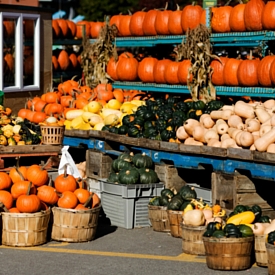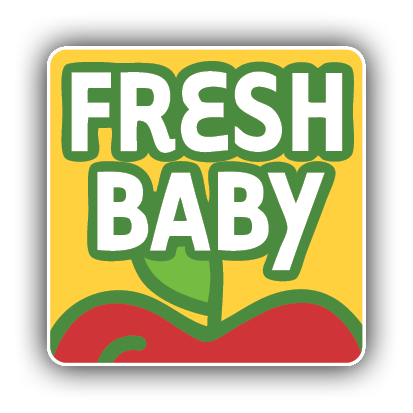
It’s autumn and it’s a great time of year for some seasonal foods and to try something new!

Brussels Sprouts
Brussels sprouts are typically available year round, but their peak growing season starts now! Brussels sprouts are a member of the cabbage family, and according to the University of Nebraska-Lincoln Extension, they might also prevent certain types of cancer. Brussels sprouts are high in potassium, and are good sources of vitamins C and A, as well as protein.
Sprout and Grape Puree for Baby

Pears
Pears are candy-like sweet, but like all fruits are surprisingly very healthy. Pears are a good source of Vitamin C, potassium, and natural dietary fiber. One pear will give you 16% of your recommended daily allowance of fiber of which 41% is pectin. Pectin is a type of soluble fiber that helps to lower blood cholesterol levels and regulate the body’s use of sugars.
Roasted Pears and Breakfast Sausage

Pumpkins
Pumpkin is excellent for you. It has no cholesterol and is low in fat and sodium and rich in vitamins. The bright orange color of pumpkin is a dead giveaway that it is loaded with the antioxidant, beta- carotene. Current research indicates that a diet rich in foods containing beta-carotene may reduce the risk of developing certain types of cancer and offers protection against heart disease and other aspects of aging.
On top of being good for your health, Pumpkins taste good too. That’s why they are a part of the diet in almost every country in the world.

Sweet Potatoes
Sweet potatoes, like all vegetables should be eaten regularly. Studies have shown that sweet potatoes contain essential nutrients that can reduce risk of cancers, especially colon and lung, decrease cholesterol, reduce risk of stroke and heart disease, and may improve the effectiveness of the immune system.
Spinach and Sweet Potato Risotto
White Bean, Sweet Potato and Banana Puree for Baby

Winter Squash
There are two kinds of squash – summer and winter. Winter squash are pumpkin, butternut, acorn and spaghetti squash. Winter squash isn’t eaten raw. It is high vitamin A, beta-carotene, potassium, vitamin C and fiber, and also contains niacin, folate and iron, according to the Pennsylvania Department of Agriculture, and is low in calories and has no fat or cholesterol.
Butternut Squash and Roasted Garlic Soup


